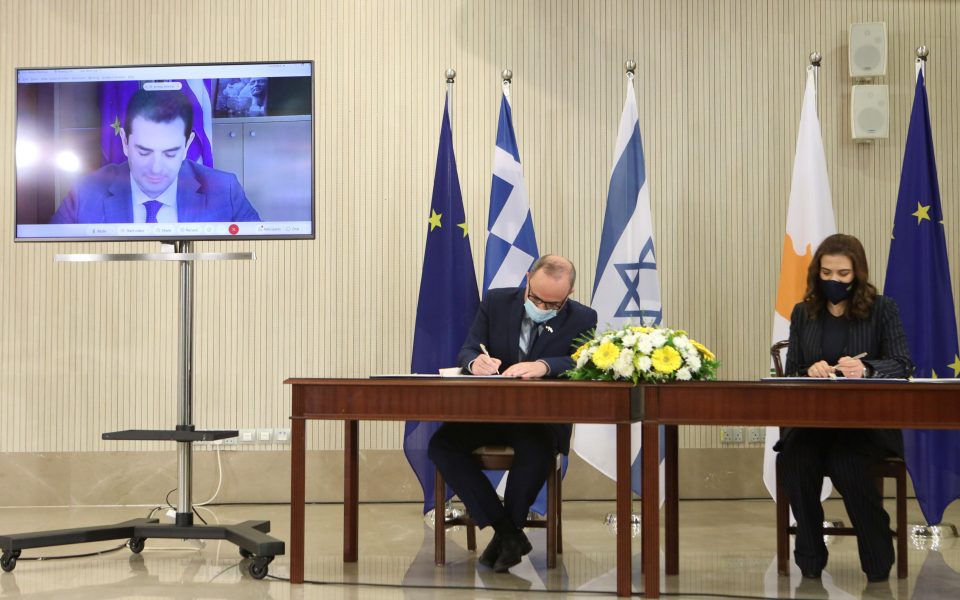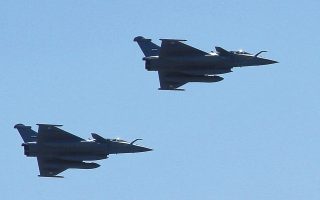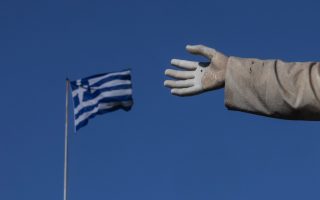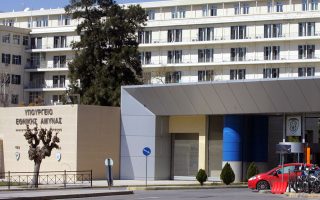Upgrading Greece’s geostrategic and geoeconomic status

Politics and international relations have no room for certainties. However, more and more indications suggest that Greece and today’s Turkey will not manage to find common points of reference or mutually acceptable norms of behavior. In the context of its “diplomacy of coercion,” Turkey seems to hinge any easing of tensions with Greece on the fulfillment of irrational demands and claims on its side, essentially presenting the Greek side with a blackmailing dilemma: appeasement or tension. It is almost certain that until the informal five-party summit on Cyprus, Turkey will maintain an ambivalent stance, keeping up some low-level tension without engaging in extreme actions that could compromise its position internationally. Once the summit is over, and depending on conditions at the time, Ankara will readjust its position.
Greece can neither remain trapped in an endless cycle of Turkish provocations nor allow its international relations to be conditioned by Ankara’s mood and ambitions. The ties Greece has developed with the countries in the region, its membership of the European Union and NATO, the strengthening of ties with the US, combined with a series of geopolitical and technological developments, all create the conditions for an upgrade of the country’s geostrategic and geoeconomic profile. All that would transform Greece from a peripheral EU state into a trans-Mediterranean power linking Europe with North Africa and the Middle East (the concept is discussed by Austrian professor Michaël Tanchum in his excellent policy paper titled “Greece’s Rise as a Trans-Mediterranean Power: Greece’s Eastern Mediterranean Strategic Shift to Europe-to-Africa and Europe-to-Middle East Connectivity,” which was carried out for the Hellenic Foundation for European and Foreign Policy (ELIAMEP). The implementation of such an ambitious but nevertheless feasible plan requires that the political class coordinate with the country’s productive forces, as well as a collaboration between different ministries, not just the ministries of Defense and Foreign Affairs.
The aim would be Greece’s organic interconnection with the new networks taking shape in North Africa and the Middle East. Greece, due to its geographical position, could become a transit hub. Already, the interconnection of the Trans Adriatic (TAP) gas pipeline with Bulgaria and Serbia and the floating storage and regasification unit (FSRU) off Alexandroupoli in northern Greece constitute steps in that direction. However, more is needed if the country is to make use of all possibilities and fully exploit the prospects that are opening up.
For example, although most of the TAP pipeline runs across Greece, there is no Greek involvement, barring the revenues generated through tariffs. For Greece to grow into an inter-Mediterranean power, it must bring added value to the production chain. Achieving this requires planning, capital and investment so it can make the most out of its financial and scientific resources, the advantages of its geographical location and the relations developed with the countries in the region. Greece’s participation in these networks would render it an European entry point for goods and services while Greek productive investments would elevate the country into a regional geoeconomic hub.
Greece as an EU and NATO member can and must integrate its relations and interconnections with the countries in the region into both the Western security architecture and the region’s economy and trade architecture. Doing so would upgrade Greece and shift the balance of power both regionally and within the EU. Greece’s ties with Israel and Egypt could serve as an axis of stability and growth to which the rest of the countries in the region could also anchor themselves.
The timing is exceptional in the wake of the Abraham Accords. Political obstacles of the past are being lifted, opening up the path to broader partnerships between the countries in the region with which Greece has already developed exceptional ties. In this context, there are many feasible projects which, if implemented, would radically change the map of networks and, by extension, upgrade Greece’s status. It is worth mentioning the interconnection of the Port of Piraeus with Egypt’s Mediterranean ports (such as Alexandria and Port Said) and the connection between Piraeus and Haifa and from there via railway network to the Gulf (Saudi Arabia, UAE). These plans make strong sense on a geoeconomic and geopolitical level, and the fact that China has invested in many of these ports and included them in the new Silk Road initiative facilitates their materialization further. Also important, for similar reasons, is the EuroAfrica Interconnector and the Middle East via Crete-Cyprus. Finally, an important alternative is the proposed transfer of natural gas from Egypt to Crete (and from there to mainland Greece and the rest of Europe) rather than the geopolitically and economically uncertain EastMed pipeline. This pipeline would run through the demarcated exclusive economic zones of Greece and Egypt, thereby consolidating the Greece-Egypt deal while at the same time exposing the geographic absurdity of the Turkey-Libya memorandum.
Conditions are now mature for the various regional initiatives and forums of which Greece is a member as well as the various trilateral schemes to evolve from talking shops into a dense web of economic, commercial, technological and defense relations. Strategic relations cannot evolve with words alone; they need to be based on mutual interests that emerge gradually in the field. The objective of containing an aggressive third country is an important shared factor but, in the long run, it is not enough to keep a “strategic relationship” alive because that would be determined by an outside factor; it depends on the behavior of a third party and it is, by nature, opportunistic and ephemeral. At some point (rather sooner than later), relations may normalize and then the “strategic relationship” loses its raison d’être. For relations to have a solid basis, they must depend on shared economic and political interests. Such relations do not necessarily imply a hostile stance toward Turkey nor do they aim to isolate Turkey. But they will inevitably serve as a counterweight to Turkey’s hegemonic aspirations, bringing the country before the dilemma of membership (accepting the rules of the game) or (self-)exclusion.
The modern Greek state is entering its third century. It could be said that the first century marked the country’s national unification while the second century was that of European membership. Greece’s key national goal in this third century could be that of bolstering its geostrategic and geoeconomic status.
Alexandros Diakopoulos is former national security adviser to the Greek prime minister.





